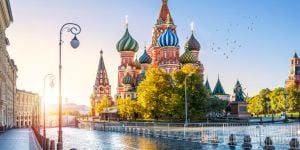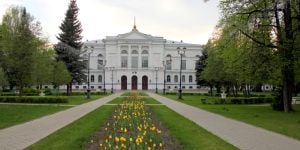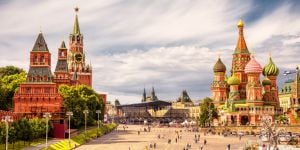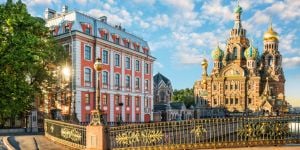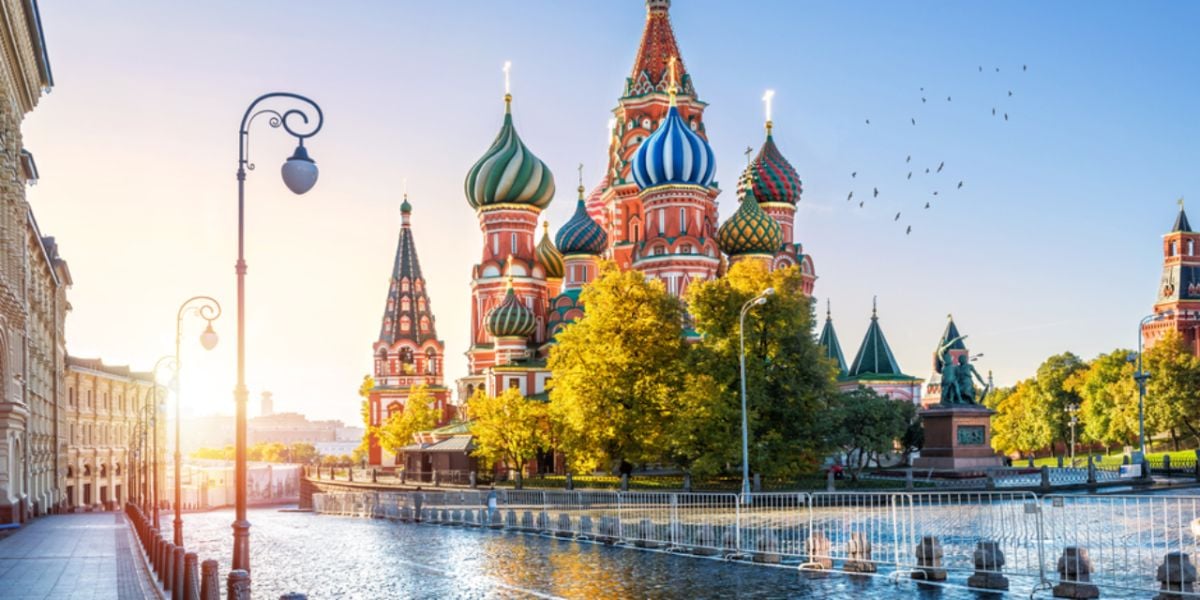
Moscow was founded on the banks of the Moskva River and stretches over 2,511km2. It is deemed to be one of the world's most expensive capitals cities and is also known to be Europe's largest and most populated city. According to the 2016 census, Moscow's population amounted to almost 20 million people over the whole region, accounting 14% of the Russian population. Moscow is also the country's biggest economic hub.
Since the fall of the Soviet regime, Moscow has developed internationally and, as a result, attracted expatriates from across the globe. In fact, people worldwide dream of working and living there. If you wish to settle there, you are advised to inquire on the rental market and the cost of living in Moscow.
Moscow's neighbourhoods
Patriarch's Ponds is close to many renovated apartments in the west-central part of Moscow. Wealthy Muscovites as well as expatriates particularly like this neighbourhood. The district is both centrally located and quite far from the metro (up to 25 minutes on foot from the closest metro station). It has the relaxed atmosphere of a small town within the city.
Tverskaya-Kremlin is the busiest and most frequented district. It concentrates all the most expensive hotels and restaurants in Moscow, plenty of shops, bars, cafes as well as the main museums. Tverskaya Avenue, the equivalent of the Champs Elysées in Paris, is very dynamic and all of its pavements have been reorganised since 2016 to give cyclists and pedestrians more space with cycling lanes and larger and greener pavements for pedestrians. Living in this area is very convenient, but beware of the noise that both the traffic and visitors generate.
Tsvetnoy Boulevard is particularly affected by traffic jams, as the main road to get to the famous Garden Ring and the city centre passes through this neighbourhood. It hosts the Moscow Circus, as well as many restaurants, cafes, shops and nightclubs. Many companies have decided to settle in this district, but some residential buildings remain away from the main streets.
Chistiye Prudy and Lubyanka is a very charming district. It hosts many cafes, theatres, museums and universities which are extremely popular with the locals as well as with foreigners. The oldest buildings of this very vibrant district have been renovated in 2016, thus returning it to its former splendour.
Frunzenskaya is the ideal neighbourhood if you are searching for an apartment overlooking the city's most popular and visited park, Gorky Park. It is nicknamed 'Moscow's Chelsea'. This neighbourhood is located on Moskva river banks, hence hosting many green spaces.
Zamoskvorechie is currently undergoing renovation projects. This neighbourhood has also been attracting entrepreneurs who set up their business head office there. You are likely to find new residential buildings there.
Arbat-Kropotkinskaya, which is found near the Kremlin, offers a breathtaking view of the Moskva river and the Christ the Saviour cathedral. Pre-revolution buildings have been refurbished. Nowadays, it hosts high-end apartments.
Taganskaya, which is found in the south-east of Moscow, hosts many companies. It also has a vibrant nightlife which attracts clubbers as well as foreigners in quest of a thrilling lifestyle.
Kutuzovsky Prospekt is the main road which leads to Moscow's city centre. It is also known to be a historical neighbourhood with huge buildings dating from the Politburo occupation years. Nowadays, these buildings host fashion and designer shops.
Krasnopresnenskaya, for its part, is developing into a new financial district with a new dynamism. Existing buildings have been renovated and turned into new corporate offices.
Rent prices in Moscow
As Moscow ranks among the world's most expensive capital cities, you should expect to pay high rent prices there if you wish to find a flat with western standards. Rent is calculated according to the housing unit's dimension, its location and distance from the nearest metro station, its
condition and the neighbourhood, as well as facilities which are in the area.
Hence, you will need between 30,000 and 40,000 Russian roubles to rent a one bedroom flat of 35 square meters in a building made of brick dating from the 1950s-1980s and from 50,000 Russia rouble to rent a flat of 50 square meters built in the Stalin era and in better condition. If you prefer to rent a two bedroom 100 metre squared modern apartment with parking facilities and a concierge, you will need at least 80,000 Russian roubles per month.
Obviously, figures will vary from one neighbourhood to another.
Find accommodation
Among the various ways to search for accommodation abroad, turning to a real estate agency seems to be the ideal solution. In fact, real estate professionals will advise you and help you find accommodation according to your needs and budget. You can also inquire with your friends and contacts if you have any in Moscow.
Otherwise, you can still check out housing offers on popular websites dedicated to buying and renting real estate in Moscow. But be careful with self-made agents on these websites, as they are not professionals.
Formalities
In general, lease periods in Moscow range between one to three years. Lease documents are provided in Russian and English. So no translation or notarization is required. It is also possible to renew the lease for a similar period.
Moreover, tenants are authorized to break the lease before it expires provided they give the owner a three month notice. On the other hand, owners are not allowed to break the lease before it expires, unless the tenant has violated its terms and conditions.
Documents to be produced to rent a housing unit in Moscow are your passport and your visa.
Useful links:
Arkadia
IntermarkSavills
Real Estate Moscow
Rent Xpress
Moscow City Government
Booking.com
AirBnB
We do our best to provide accurate and up to date information. However, if you have noticed any inaccuracies in this article, please let us know in the comments section below.
